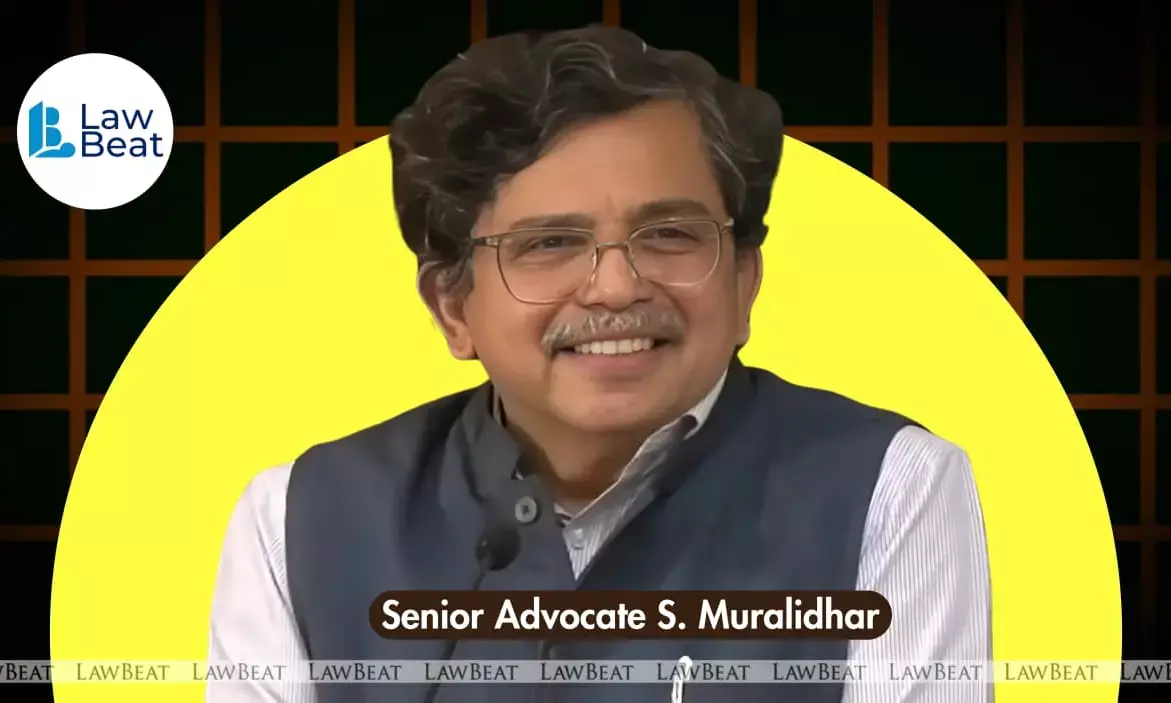SC Must Go Beyond Rulings, Ensure Compliance: Dr S Muralidhar on Rampant ‘Bulldozer Justice’

Retired Justice Muralidhar has questioned the Supreme Court's 'tearing hurry' for delivering the Ayodhya Verdict just two months after reserving judgment.
At the launch of the book [In]Complete Justice: The Supreme Court at 75 in New Delhi on August 27, Senior Advocate and former Chief Justice of Orissa High Court Dr S Muralidhar voiced concern over the Supreme Court’s directions against the practice of “bulldozer justice” not being effectively implemented on the ground.
Despite clear directions from the Supreme Court in November 2024 prohibiting such executive action, Dr Muralidhar pointed out that violations continue unchecked. He observed that while the Court has laid down binding directions, laxity in implementation has allowed authorities to continue punitive demolitions. “You (SC) have just laid down a judgment. Somebody is coming to you and pointing out that this judgment is being violated. And that case is not listed in good time. And this is a question that plagues me still,” he said during a Q&A session.
Dr Muralidhar suggested that the Supreme Court employ the device of continuing mandamus; a judicial tool where the Court keeps a matter pending to ensure compliance with its orders; in sensitive cases such as this. “Unless you keep it for monitoring before yourself, the Executive is not going to implement it due to various other considerations,” he noted.
He emphasized that judges who deliver such rulings should “craft the aftermath proceedings” to ensure that directions are followed, rules are amended, and compliance is secured before closing the matter. “Till they make sure that the instructions have been given down the line to implement, that rules have been amended, my own feeling is that those proceedings should not be closed,” he said.
Drawing from past experience, Dr Muralidhar cited the NALSA v. Union of India case (2014), where the Court recognized the rights of transgender persons and issued welfare directions. Many beneficiaries, however, had to repeatedly approach the Court for implementation. “People had to go back, saying you have laid down a good judgment, but it is not getting implemented. The device of continuing mandamus is not applied across the board in all cases. There are certain cases where it is necessary,” he said.
The comments come against the backdrop of the Supreme Court’s ruling last year by a Bench of Justices BR Gavai and KV Viswanathan, which categorically held that punitive demolitions are unconstitutional.
The Court had observed:“The chilling sight of a bulldozer demolishing a building, when authorities have failed to follow the basic principles of natural justice and have acted without adhering to the principle of due process, reminds one of a lawless state of affairs, where ‘might was right’. Such excesses at the hands of the executive will have to be dealt with the heavy hand of the law".
The Bench had also observed that Executive cannot become a Judge and decide that a person is guilty and therefore punish him by demolishing their house. Justice BR Gavai while pronouncing the judgment had further said, "Such acts pf the executive have to be dealt with heavy hand of the law.". He had further held that an authority cannot be permitted to take away the shelter of an entire family only on the ground that one person residing in the house is accused of a crime. Also "If executive demolishes the house of a person only on the ground that they are an accused, that is a violation of rule of law.." , the Court had further said while laying down guidelines on demolition of structures. The Apex Court had held that even after orders on demolition are passed, aggrieved party should be given time to challenge that order and sufficient time should be given to vacate the house.
